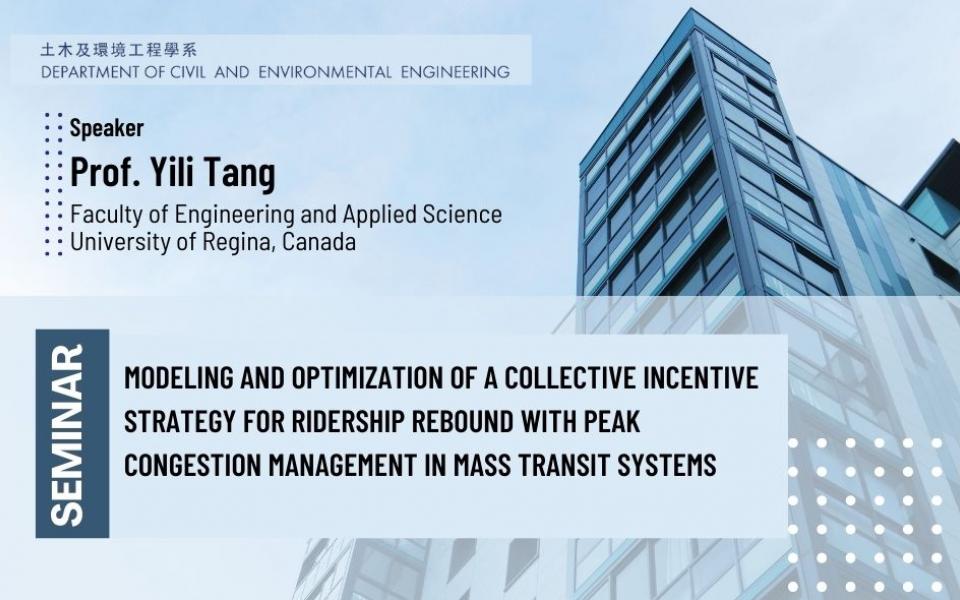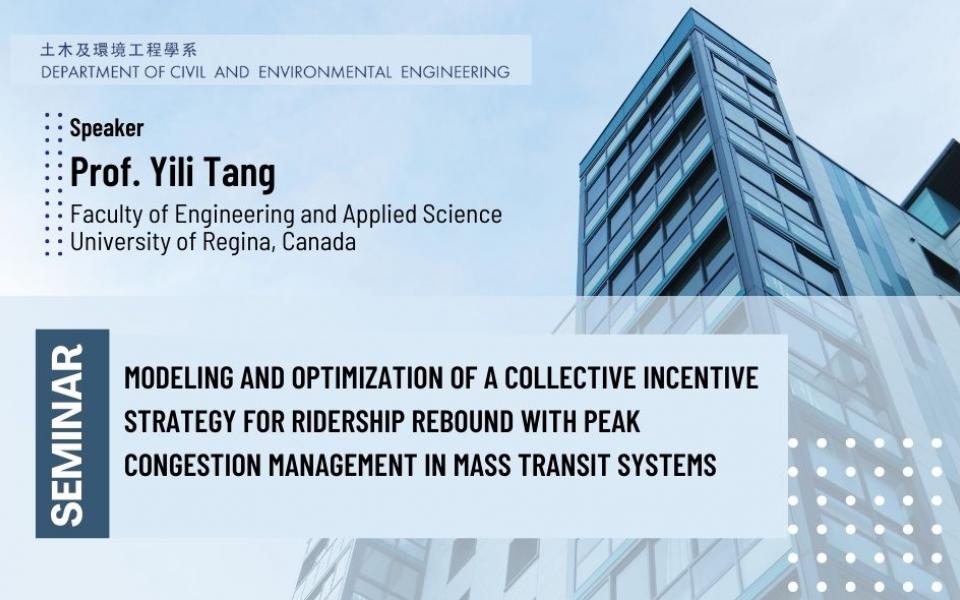Civil Engineering Departmental Seminar
Supporting the below United Nations Sustainable Development Goals:支持以下聯合國可持續發展目標:支持以下联合国可持续发展目标:
Modeling and Optimization of a Collective Incentive Strategy for Ridership Rebound with Peak Congestion Management in Mass Transit Systems
Peak and valleys in demand is one of the most significant challenges for transit authorities to manage demand and improve system efficiency. The post pandemic further induced the imbalanced peak and off-peak hour ridership. This study models and analyzes a collective incentive strategy with passenger departure time equilibrium aiming to maximize the total passenger surplus. In the proposed collective incentive strategy, passengers have dynamic off-peak period discounts where the discount value depends on the total number of passengers enrolled in the incentive program. The proposed model considers passengers’ demand elasticity and responses to the strategy and determines the starting time and duration of the collective incentive strategy during the time of the day. We analyze the properties of the proposed collective incentive model to identify the analytical solutions and performance. Analytical results indicate that there exists a threshold demand elasticity below which the total surplus of peak and off-peak commuters can be improved simultaneously. Properties also show that there could exist multiple local optimal solutions of incentive strategy duration for a given starting time. A case study is conducted with Toronto metro system where results indicated that the proposed collective incentive strategy is capable of improving total passenger surplus, increasing off-peak ridership, reducing crowding and congestion and improving transit revenues simultaneously.
Dr. Yili Tang is an assistant professor at the University of Regina (Canada), leading the Mobility Technology Research Group focusing on travel mobility and human behaviors, modeling and optimization, artificial intelligence and game theory. She obtained her PhD from Hong Kong University of Science and Technology and has worked as a postdoctoral scholar at University of California Berkeley. Parallelly, Yili has four years of experience working as an algorithm engineer and researcher in industry on automation, robotics, and multi-agent systems. She actively engaged in diverse activities in both academia and industry in Canada, United States, Hong Kong, Denmark, and Japan. She leads and co-leads over eight collaborative research grants (over 1.5 million CAD) and has won over six awards in research and entrepreneurship. Her research studies have been published in top tier journals in economics and transportation engineering. One of her papers in behavioral modeling and demand management strategies was recognized as one of the most cited articles published since 2018 in the top journal Transportation Research Part B.

